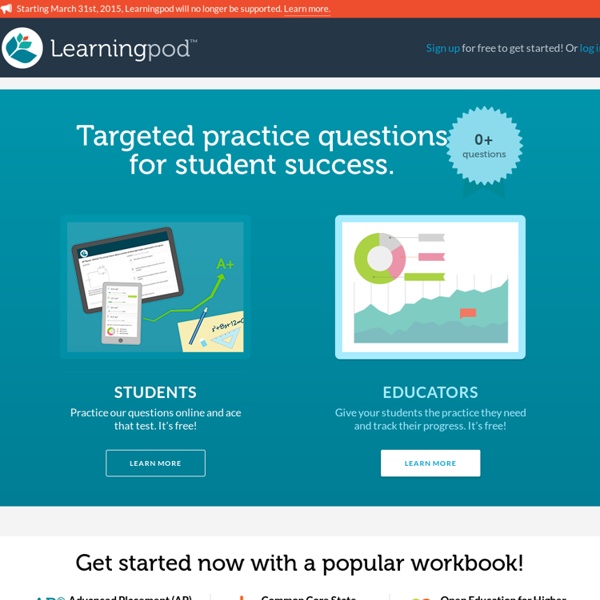



7 Herramientas gratuitas para elaborar un Quiz en Internet Ser profesor siempre es complejo, por tratarse de esa enorme responsabilidad que representa el jugar papel activo dentro de la educación de un grupo de personas y especialmente jóvenes; por lo que, conscientes de ello, hemos encontrado algunas herramientas que muy seguramente le harán más sencilla la engorrosa tarea de educar. Dentro de las labores que debe asumir un docente esta el hecho de evaluar a los estudiantes, para de esta manera poder validar que el aprendizaje ha sido apropiado de la forma esperada, algo que en muchas ocasiones pone a pensar al maestro sobre las herramientas adecuadas para calificar a sus alumnos, siendo el quiz una interesante opción para hacerlo, y que mejor si para ello aprovechamos las ventajas de la tecnología. QuizBean Este aplicativo facilita las cosas en lo que respecta a la formulación de quiz evaluativos y sus respectivas calificaciones. Google Forms Una de las más populares.
eTutoring: Free Online Tutoring What is eTutoring? PCC is partnering with the Western eTutoring Consortium to provide free online professional tutoring to all for-credit PCC students. Subjects include: A+ Spelling Test Generate leads online using quiz templates Pick Me! Zaption - Interact With Video